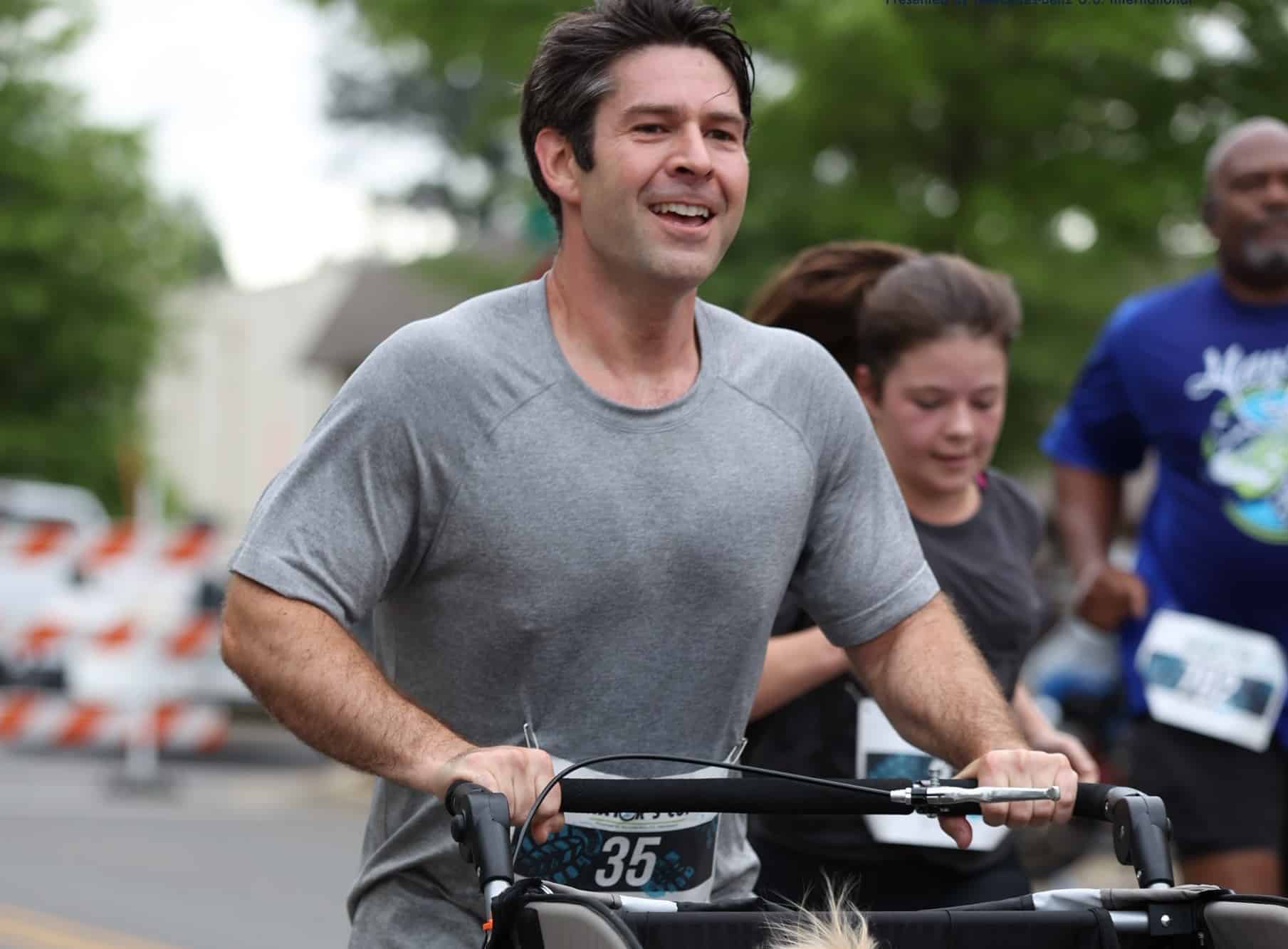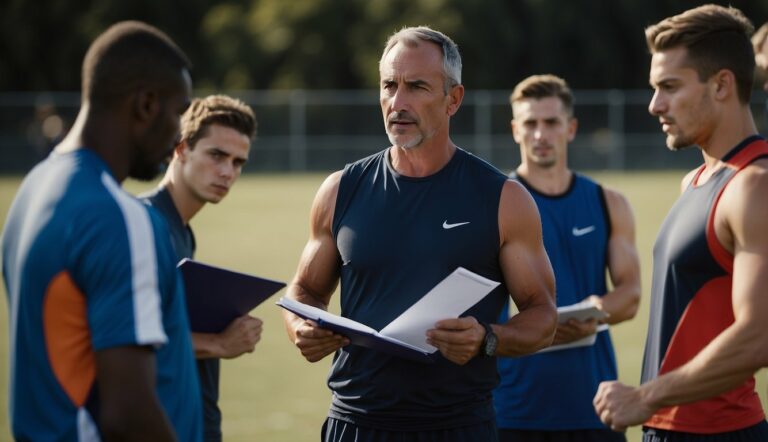How to Hire a Running Coach: Finding the Right Fit
As a UESCA certified running coach with extensive experience in the field, I understand the transformative impact that personalized guidance can have on your running journey. Whether you’re targeting your first 5K or aiming for a marathon PR, a running coach tailors your training to meet your individual goals. By analyzing your current performance and identifying areas for improvement, a coach sets a clear and actionable plan to propel you towards your running ambitions.
In my practice, the majority of runners benefit from the accountability and expertise that a structured coaching relationship provides. A running coach isn’t just about setting schedules; it’s about adjusting your training dynamically to your life’s rhythms, preventing injuries, and refining your running form. This personalized touch is what takes your running from consistent to peak performance.
If you’re aiming to enhance your distance running or improve your times, running coaches can be a pivotal step. I’ll work with you to harness your strengths, tackle your weaknesses, and push beyond the plateau that every runner inevitably faces. Together, we’ll map out a path to your running goals that is as rewarding as the finish line itself.
First, Define Your Running Goals and Needs

Before you invest in a running coach, it’s essential to clarify what you want to achieve and understand your current running capabilities. This ensures a tailored coaching approach that will guide you toward your aspirations effectively.
Identify Your Objectives
Setting clear goals is crucial in your running journey. Are you aiming to complete your first marathon, qualify for the Boston Marathon, or simply improve your average overall fitness?
Your motivation might be seeking accountability, overcoming a plateau, or pushing your performance to the next level.
List your goals in order of priority:
- Primary Goal: e.g., Run a marathon, track events, etc.
- Secondary Goals: e.g., Improve race times, increase endurance, strength training, nutrition
Keep in mind: A personalized training plan from a coach hinges on these objectives.
Assess Your Current Level
Understanding your current fitness level and running experience is vital.
Whether you’re a beginner or an elite runner, it’s important to be realistic about your starting point:
- Fitness Level: General condition, endurance, weekly mileages or distances, strength
- Running Experience: Novice, intermediate, advanced athletes
- Past Injuries: List any previous injuries to avoid recurrence
This assessment allows your coach to create a plan that progressively builds on your strengths while addressing any weaker areas. Remember, the aim is to challenge you appropriately—pushing too hard can risk injuries, while not pushing enough might result in stagnation.
Research Potential Coaches
Selecting the right running coach requires diligent research to ensure compatibility in qualifications, experience, and coaching style. It’s not just about certifications; it’s also about finding someone who aligns with your goals and personality.
Qualifications and Certifications
When considering a potential coach, begin by examining their qualifications and certifications to establish credibility.
Certifications from recognized organizations, such as the Road Runners Club of America (RRCA) or the United Endurance Sports Coaching Academy (UESCA), indicate a foundational knowledge in coaching principles and adherence to industry standards. Additionally, look at their educational background—degrees in exercise science or related fields add depth to their expertise.
Below is a list of details you should consider:
- Certifications: Check for current certifications and any specialization.
- Education: Note if they have a degree in exercise science or a related field.
- Continuing Education: Consider their commitment to staying updated with industry knowledge.
Coaching Philosophy and Style
My coaching philosophy and style reflect a balance between the art and science of running. I firmly believe in developing a personalized approach that caters to individual needs and goals.
When researching coaches, ask about their coaching philosophy and determine if it resonates with your perspective. Evaluate their communication style—clear, concise, and frequent communication builds the foundation for trust and effective mentorship. Additionally, it is essential to comprehend their style, which could range from ‘tough love’ to more of a mentor-centric approach that focuses on encouragement, motivation, and accountability.
Here’s what to focus on:
- Philosophy: Does their coaching approach align with your goals and values?
- Style: Is their style adaptable to your personality and needs?
- Communication: Assess their preferred methods and frequency of communication.
In your search for a coach, seek one who shows genuine passion and can offer perspectives from their own running and coaching experience. Their ability to foster trust, demonstrate expertise, and create a responsive coaching environment that adapts to your evolving needs is just as critical as their professional credentials.
Initial Consultation and Questions
When hiring a coach, your initial consultation is the foundation of the coach-athlete relationship.
It’s your chance to ask specific questions to gauge whether a coach’s expertise and coaching philosophy align with your needs and goals.
Prepare Key Questions
Budget and Services:
Focus on understanding their services relative to your budget.
- Services Offered:
- Individualized training plans
- Regular check-ins
- Race strategy sessions
- Advice on running shoes and other running gear
- Budget Considerations:
- Package Prices: Discuss various service tiers and associated costs.
- Payment Options: Inquire about payment plans or session packages.
Expertise and Philosophy:
Gain insight into their qualifications and approach.
- Certifications: Seek UESCA or equivalent certifications that attest to the coach’s professional training.
- Coaching Style:
- Coaching philosophy
- Athlete success stories
- Skill Development:
- Technique improvement, speed workouts, fixing imbalances
- Injury prevention strategies
Communication and Expectations
Open Communication:
Establish how your communication with the coach will take place.
- Communication Frequency and Means:
- Daily/Weekly updates via email, phone, or face-to-face
- Accessibility for urgent inquiries
- Feedback Loop:
- Structure for providing and receiving performance feedback
Availability and Support:
Ensure their availability aligns with your schedule for ongoing guidance.
- Contact Schedule:
- Hours of availability
- Emergency contact protocols
- Support Framework:
- Access to resources
- Types of support offered beyond workout plans (motivational, nutritional advice, etc.)
Setting Expectations:
Clarify what helps forge a successful partnership.
- Short and Long Term Goals: Outline achievable milestones.
- Trust Development: Discuss the importance of mutual trust to enhance the coaching experience.
As a UESCA certified running coach with experience in developing athlete potential, I believe in creating a communicative and adaptive environment.
If you’re looking for expert guidance tailored to your individual goals, let’s connect to discuss how my coaching can elevate your performance!
And, here is my online coaching page with all of my available coaching packages. Feel free to call me at 1-800-640-9232 to chat (free consultation, no obligation)!
Consider the Logistics
When hiring a running coach, the two immediate considerations are their availability and your budget. These factors are critical to ensure a coach’s services align with your schedule and financial means.
Availability and Accessibility
Availability:
My coaching services are structured to fit various time commitments. Here’s how I ensure I can meet your needs:
- Local Sessions: Available if you’re in the same state or country.
- Remote Coaching: Offers flexibility for those with travel or irregular schedules.
- Personalized Schedules: Adapted to your time constraints.
Accessibility:
- In-person sessions in Tuscaloosa, AL and surrounding area.
- Virtual consultations and coaching regardless of your location.
Budgeting for a Coach
Investment: Hiring a running coach should be seen as a long-term investment in your goals, but money is an important factor.
Here’s how to budget for it:
- Initial Consultation: Discuss your objectives and receive a quote.
- Package Options: Choose from a range of services to suit your budget.
- Payment Plans: Flexible solutions to manage the investment over time.
When considering a running coach, reflect on the time and financial investment you’re prepared to make. Connect with me, and we can tailor a coaching plan that respects both your schedule and budget, propelling you towards your running aspirations.
Making the Decision
Making the right decision when hiring an experienced running coach involves careful consideration of their qualifications and how well their coaching philosophy aligns with your goals. It’s crucial to assess not only their certifications but also their ability to provide a custom training plan that fits your needs.
Review and Reflect
Before committing to a running coach, examine the coach’s qualifications and certifications to ensure they meet industry standards.
As a UESCA certified running coach, I advocate for transparency and trust. It’s important to discuss the coach’s philosophy and approach to training. Reviewing references can provide additional perspective and help in assessing accountability.
Qualifications Checklist:
- UESCA Certification or equivalent
- Additional relevant certificates
- Experience with various skill levels
Trial Periods and Flexibility
A trial period is an excellent way to determine if a coach’s style suits you. I offer a trial period which allows you to experience my coaching first-hand, ensuring that we are a good match.
The ability to adapt the training plan based on feedback is essential for a successful coach-athlete relationship. Trust and flexibility during this period can establish a strong foundation for future progress.
What to Expect During a Trial Period:
- Customized training plan
- Assessment of compatibility with coaching style
- Open communication for feedback and adjustments
Setting Up for Success
To ensure your running training is both effective and enjoyable, success hinges on a well-structured game plan and the flexibility to evolve as you progress. Here’s how I guide my runners:
Establishing a Training Plan
A comprehensive training plan is the roadmap to your success. The plans I create are tailored to your personal goals, whether that’s a new 5K PB or your first marathon.
My expertise ensures your plan includes a balanced mix of intensity and volume, integrates cross-training to enhance your running performance, and refines your running technique. Let’s break down the core elements:
- Goal Setting: Identify clear milestones to stay focused and celebrate progress.
- Workouts: A diversified mix of speed, endurance, and recovery runs.
- Intensity Levels: Aligned with your current fitness to drive improvement without overdoing it.
Ongoing Support and Adjustment
Your training journey requires more than just a static plan; it demands a proactive approach to support and adjustments. As your coach, I’ll provide continuous feedback and adapt your training to meet the challenges you face.
Here’s what you can expect:
- Feedback Loop: Regular check-ins for personalized feedback to prevent burnout and overtraining.
- Adjustment Strategy: Modifications in your training plan to accommodate for life’s uncertainties, ensuring consistent motivation and discipline.
- Injury Prevention: My guidance prioritizes your health with techniques that reduce the risk of injury.
Embarking on your training with a solid foundation and adaptive support can significantly raise your potential for achievement and satisfaction in your running pursuits.
Conclusion
As a UESCA certified running coach, I understand the unique journey each runner undertakes. Partnering with a coach marks a commitment to one’s running goals, providing structure and tailored guidance. Whether aiming to improve technique, increase speed, or prepare for a race, coaching offers a personalized path to achievement.
Considerations for Hiring a Coach:
- Budget: Determine what you can afford; coaching can range from a modest to a premium investment.
- Expertise: Ensure the coach’s experience aligns with your goals.
- Communication: Look for a coach who listens and communicates clearly.
Joining forces with a running coach fosters not just personal growth but also connection to the wider running community. A coach isn’t just a service; it’s a partner in your athletic progress and a link to fellow enthusiasts and competitors.
If you’re ready to take your running to the next level, my coaching services are designed to help you reach your full potential. Let’s work together to create a roadmap for your running success.
Call to Action
As a UESCA certified running coach, I’m here to guide you every step of the way.
If you’re feeling motivated and ready to elevate your running, here’s how you can take action:
- Connect with the community: Join my social media profiles for daily tips and to become part of a supportive running community.
- Join a running club: Subscribe to my podcast where I discuss techniques and strategies with seasoned runners and other coaches.
Next Steps
- Book a consultation: Visit my online coaching page to schedule a one-on-one call. We’ll discuss your goals and how I can help you achieve them.
- Sign up for my newsletter: You’ll receive curated content, training tips, and updates from the running world.
- Enroll in a training program: Choose from my online coaching services that cater to different levels, from beginners to advanced runners.
Your journey to improved performance and a deeper love for running is just one step away. Take that step with me today.



